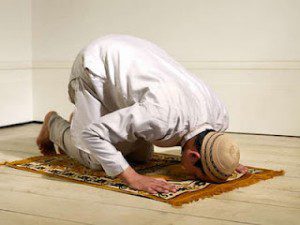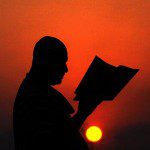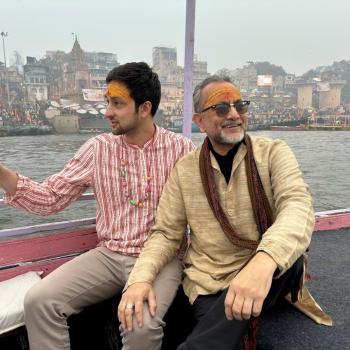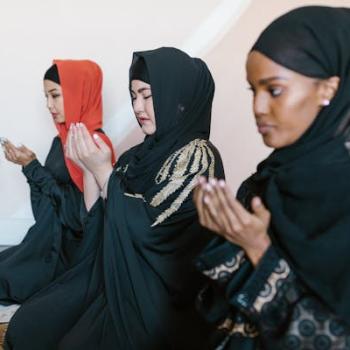A few weeks back, at an office get together, a colleague (who isn’t Muslim) told me how he used to fast four days for a particular festival observed in his faith. But he stopped fasting once he started eating meat (meat is to them what bacon and pork products are to us Muslims). He believed there was no point in observing anything, as he has let God down.
There are so many among us who feel the same way. It needn’t even be related to our beliefs. It could even be a diet program, where our mind faltered and we had a piece of pizza. The next thought is, “All’s lost. Now let me as well have a chocolate cake and a few fried pieces of chicken.”
This has happened to me. This has happened to all of us. This “ALL or NOTHING attitude” should not be the case.
Coming back to Islam, a few of my other friends who have decided it’s best to let it all go, say, “I haven’t prayed for the last ten years (or so). There is no use starting now. Is there?” Not to mention that we live in a society where no matter how much we do, it never seems enough, especially when it comes to religion.
If you pray five times a day, you will sure be asked, “Do you pray the sunnahs? If not, shame on you.”
If you do pray the sunnah, you will be asked about the nafil prayers. If you don’t pray nafil prayers, then shame on you.
We are surrounded by all too many people who, instead of making us feel included, are always trying to make us feel inferior. No accolades are given for trying. We just need to be perfect. On the other hand, if you are someone who never prays, they actually let you go. He has never prayed in his life. Period –the “ALL or NOTHING” attitude again.
Laylatul Qadr – Harnessing the Power
We are currently in the holiest days (and nights) of the Islamic Calendar year. Laylatul Qadr, which means the Night of Destiny/Decree, is upon us during these last nights of Ramadan. This is the night that Muslims believe the Quran was first revealed by Angel Gibreel to our Prophet Mohammed (saw). The Quran says:
“The Laylatul Qadr is better than a thousand months!” And:
“Whoever stands in prayer, in Laylatul Qadr out of correct belief and seeking reward then his previous sins are forgiven.”
As kids, my mother instructed me and my brother to pray the Maghreb (sunset) prayer daily on time. (The five prayers aren’t obligatory on children.) She did this to instill a habit in us not to forget the prayers. We also automatically transitioned to the five prayer schedule as we grew older, without my mother pushing us to do it.
I may or may not be right to recommend this method to adults, but I am going to. For those of you who feel they have wronged so much that they have no way back, or for those of you, who haven’t prayed for the last 10-15 years, you need baby steps. Don’t always go by the “ALL or NOTHING” rule. Starting with one prayer a day and then gradually increasing to five is definitely better than staying away altogether.
You may be laughed at by few, who might say, “Oh, when did you turn religious?” You may even be lectured by a few of those know-it-all religious pundits who say, “Five is fard (obligatory). There is no use doing just one.” But, I still recommend the gradual approach.
We are often taught how God punishes those who don’t follow Him, how God will curse those who sin. However, many of us forget the meaning behind the line we repeat so often in Islam:
Bismillah ir Rahmaan ir Raheem: In the name of Allah, the most GRACIOUS, the most MERCIFUL.
The Quran says, “Even if my slave has sins as big as mountains, I will still forgive him, because my mercy overcomes my wrath.”
Allah is most known for His mercy. There is no sin that we can’t be saved from. Ours is a religion which gives plenty of second (third or fourth) chances. Humans may not forgive us. They might not want to include us because we aren’t perfect. But you don’t need their permission to find your way back to Allah. All you need to do is ask His Forgiveness, and no better time to do it than on these last ten days of Ramadan.
Nasia Ullas is a South-Indian engineer who works at Hewlett Packard and has a diploma in creative writing. Spiritual writing is her passion. She blogs at http://nasiasramadan.wordpress.com/
This piece is part of our ongoing series on Ramadan, featuring reflections, stories, and articles from Muslims and non-Muslims on their Ramadan experiences. Keep checking altmuslim for new pieces throughout Ramadan.

















